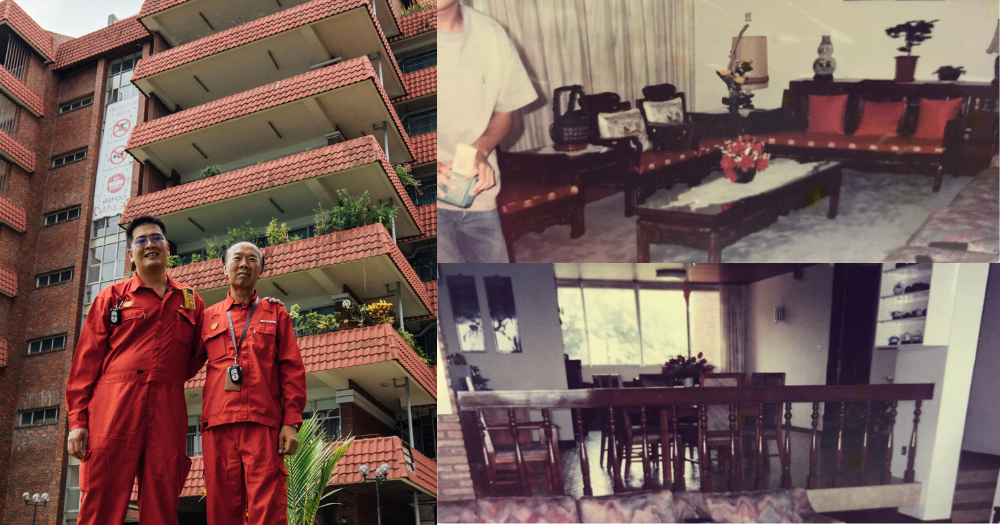Dec. 25 is a special day for many people around the world.
For a lot of people, it's a day to get together to celebrate Christmas.
But for Leng Ng Tai and his family, Dec. 25, 1989 marks the day he moved from mainland Singapore to Pulau Bukom.
Offshore island
For the uninitiated, Bukom is an offshore island located 5.5km southwest of mainland Singapore.
It houses Royal Dutch oil and gas company Shell's largest wholly-owned refinery.
It's a surprisingly short 15-minute ferry ride away from Pasir Panjang Ferry Terminal.
When I finally got to meet Leng and his son, Benny, on the island, I told them how surprised I was at how fast one can travel from mainland Singapore to Pulau Bukom.
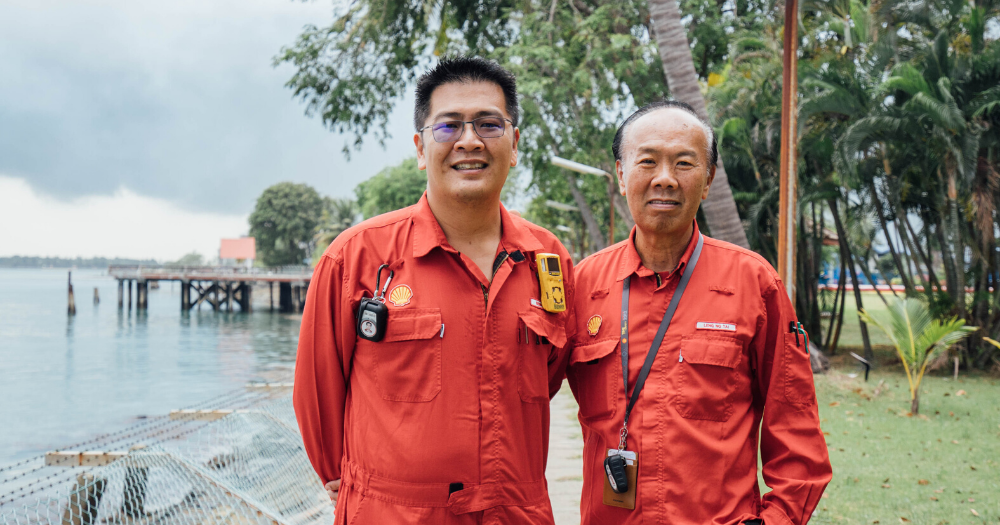 Leng and Benny posing for a photo after showing us the surrounding islands. Photo by Andrew Koay.
Leng and Benny posing for a photo after showing us the surrounding islands. Photo by Andrew Koay.
"You know, in the early days it took us 30 minutes," Leng said after a short burst of laughter, perhaps at this city girl's suaku-ness (mountain turtle, or to mean ignorant).
Different kind of living
Leng and his family of four, which includes his wife and their teenage daughter and son, moved to Bukom in 1989.
He was asked to move to the island from his home in West Coast so that he could carry out his job efficiently as the refinery's production supervisor.
Convincing his family to move with him wasn't difficult because living on the island was, in a good way, "a different kind of living".
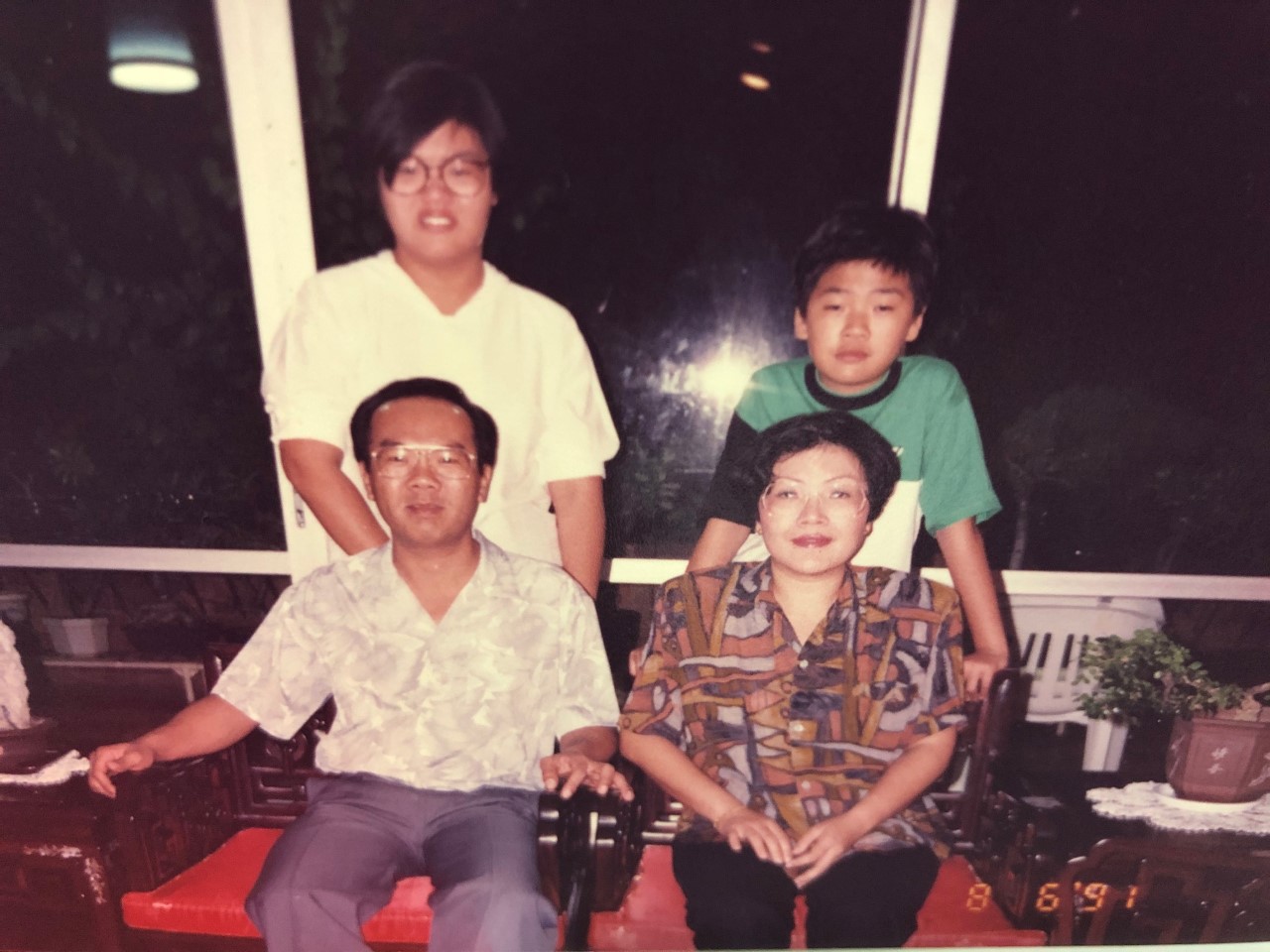 Photo courtesy of Leng Ng Tai.
Photo courtesy of Leng Ng Tai.
He explained: "More present-day Singaporeans are used to living in a condominium, but in those days we had an exclusive club."
In Bukom, they lived in a 3,000 square feet house (which is approximately the size of three 4-room HDB flats) with a central air-conditioning system and six toilets.
On top of that, the house had an amazing view overlooking the sea which they say boasted "the best sunset and sunrise".
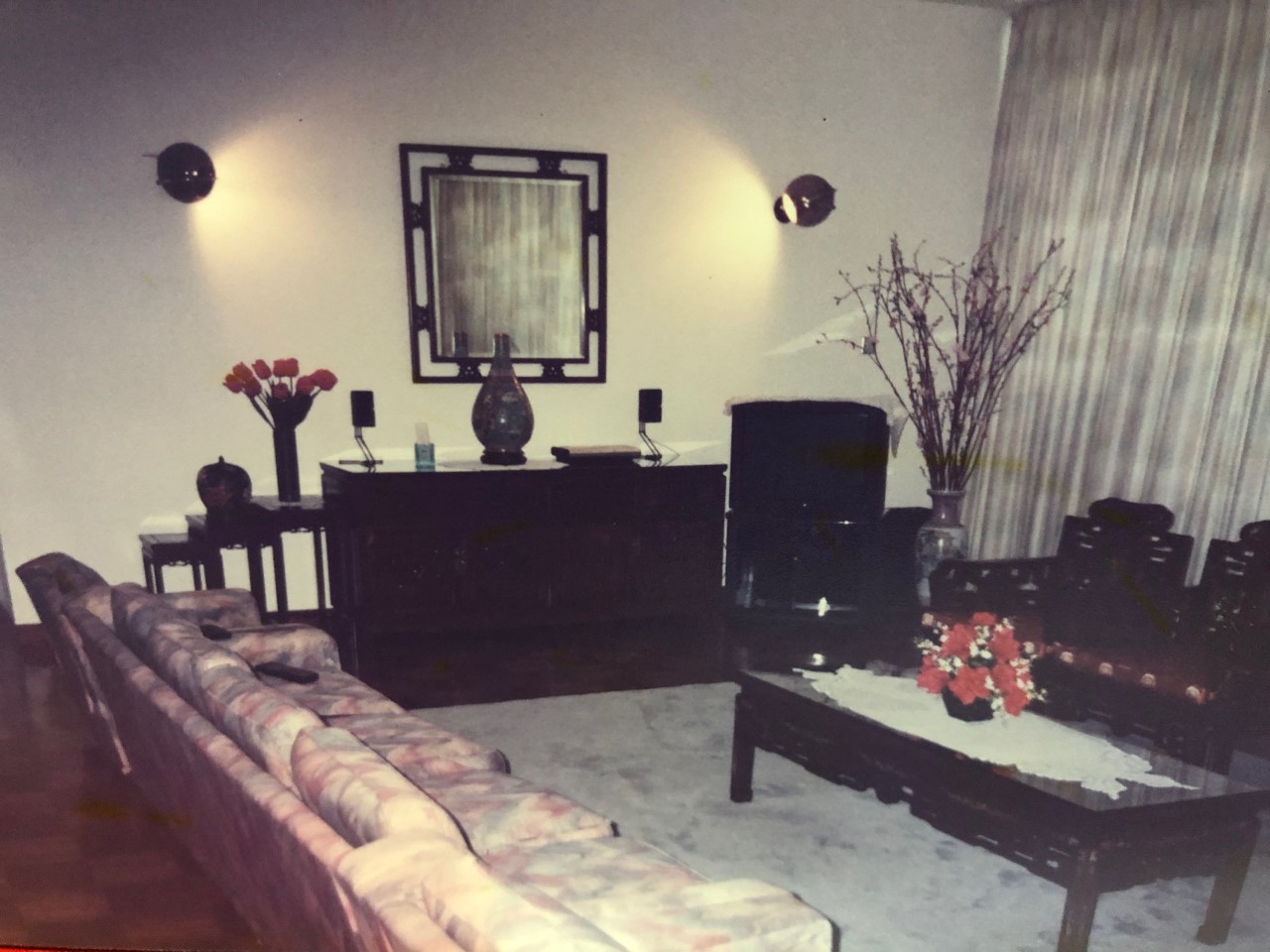 The family's living hall. Photo courtesy of Leng Ng Tai
The family's living hall. Photo courtesy of Leng Ng Tai
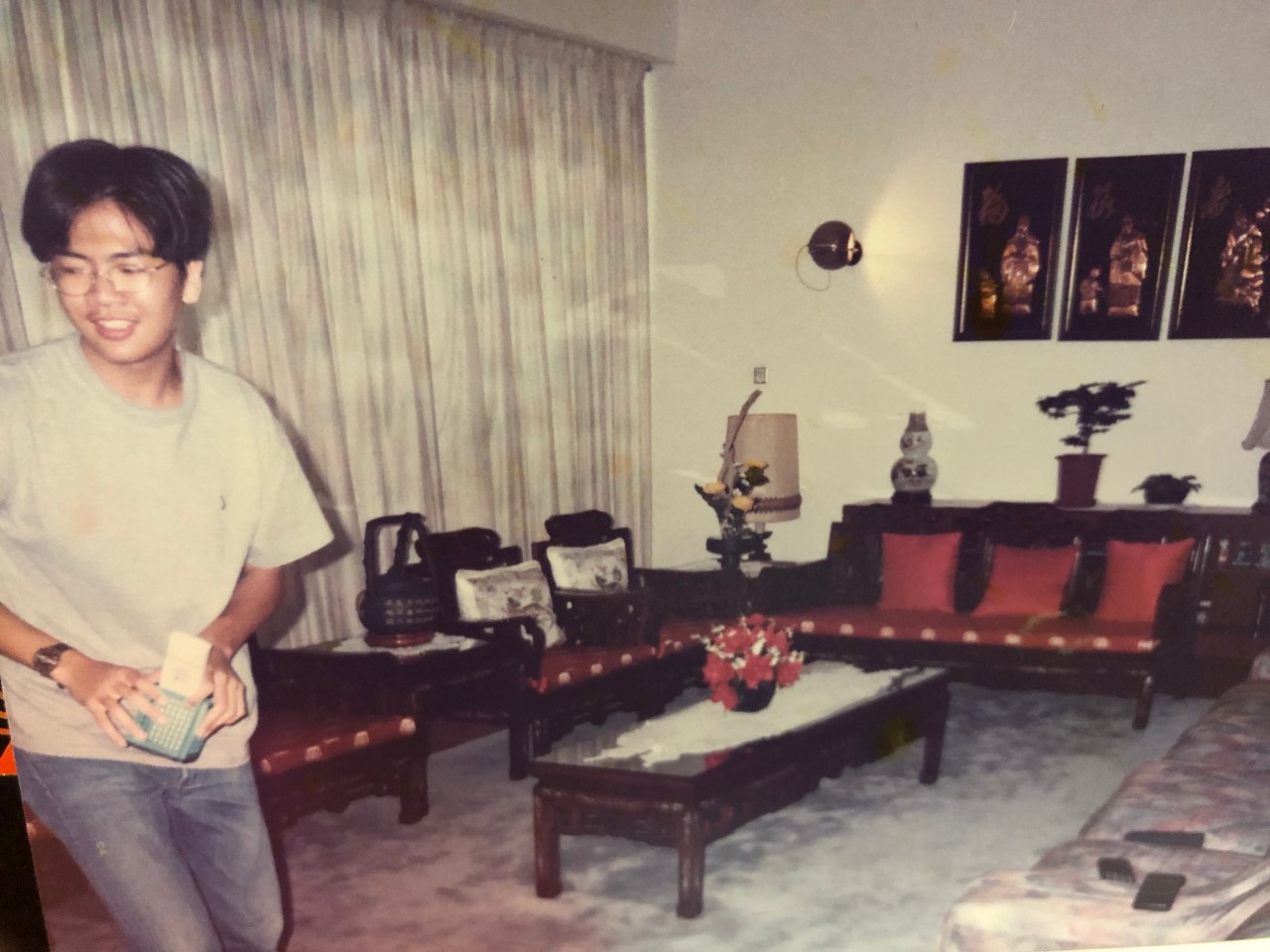 Another view of the dining area. Photo courtesy of Leng Ng Tai
Another view of the dining area. Photo courtesy of Leng Ng Tai
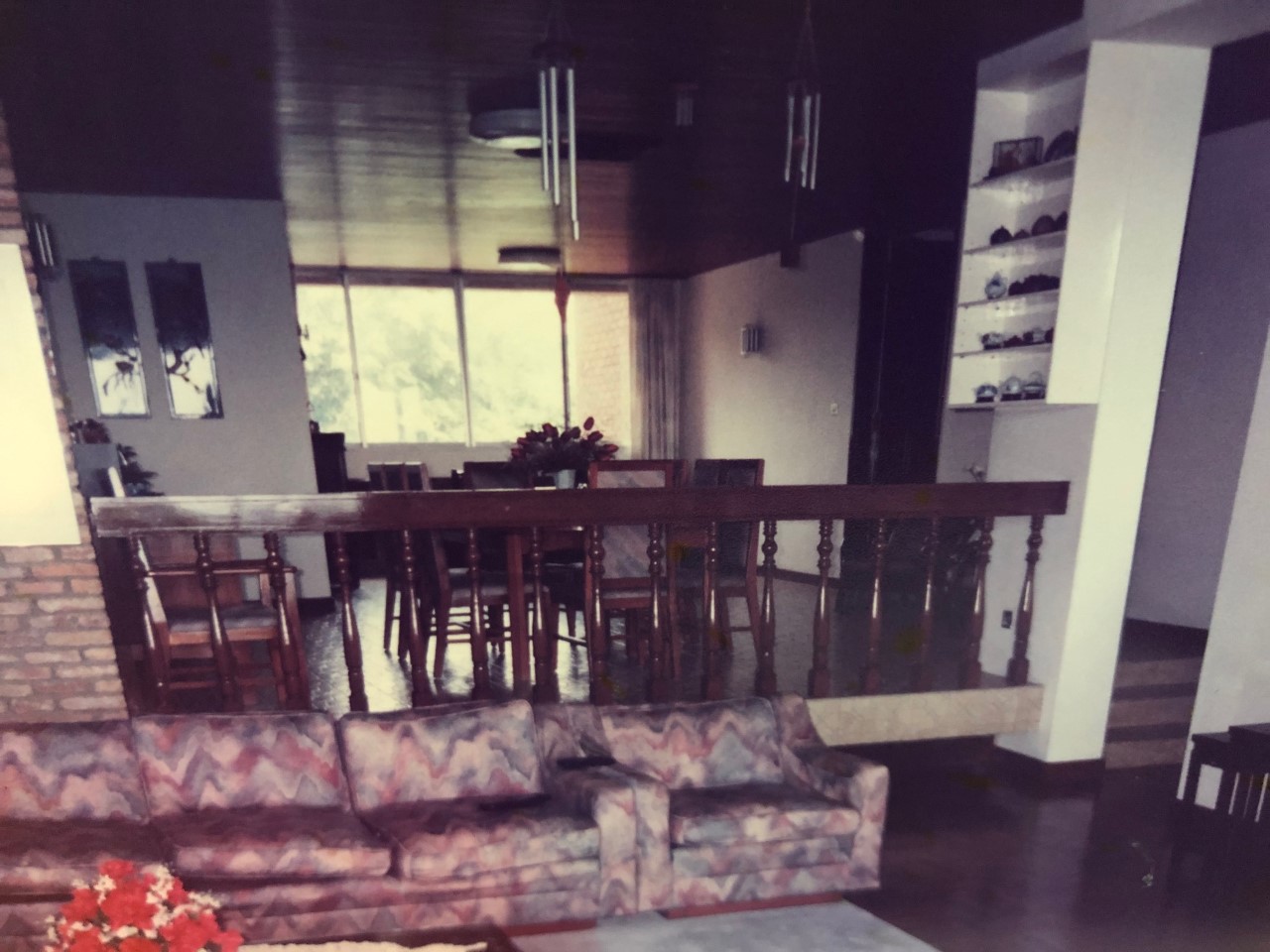 And the dining area. Photo courtesy of Leng Ng Tai
And the dining area. Photo courtesy of Leng Ng Tai
The island also had the essential amenities like a barbershop, a tailor, and a couple of restaurants.
As if that wasn't enough, they also had access to the Bukom clubhouse, which had a bowling alley, swimming pool, tennis courts, barbecue pits and even a sauna.
Benny chimed: "None of the condominiums in Singapore has a bowling alley, we had one."
An eye-opening childhood
The amenities, of course, was a huge hit among Benny's friends.
"For school holidays during my time, going to chalet was a thing. But for my friends, it was: 'Forget about chalet, let's just go to Benny's house. He has everything.'"
Whenever he has friends over, they would spend their day at the clubhouse, go fishing, and followed by a barbecue feast from 6pm all the way to 2am.
Benny said that spending his growing years there also made for a very unique childhood, and it truly shows.
While walking around the perimeter of Bukom, he could identify the other islands including Pulau Jong and Pulau Ular.

Even though it has been 23 years since he last fished on the island, he could still show me the best fishing spot on the island: By the Chinese restaurant behind the clubhouse, after leftovers were thrown into the sea as bait.
Sleeping at the ferry terminal
But there were some minor challenges living in Bukom, though.
In the days before Netflix or cable television, a common form of entertainment would be watching a movie at the cinema.
For young Benny, this meant that he couldn't catch any midnight movies as the last ferry departs Pasir Panjang Ferry Terminal at 12:20am.
And on unfortunate days when he did miss the last ferry, he would have to spend the night at the ferry terminal and wait for the next available ferry at 6am.
Did his father ever get angry when he missed the last ferry?
He cheekily said: "No, because he doesn't know. By the time the first boat arrives, he's already going to work."
Never had to sing national anthem in school
Going to school was another chore, especially since his school — Yishun Junior College — was located at the other end of Singapore.
Benny mentioned that he never had the chance to sing the national anthem because he would always be around 15-20 minutes late for school.
"My teachers used to ask me why I was always late so I showed them the address on my identification card: Block A, 4A, Pulau Bukom. After that I showed them my boat schedule. The earliest boat departs at 6:05am, there's nothing else I could do."
Fortunately for him, he transferred to the much nearer Singapore Polytechnic after he figured out that he wanted to pursue a similar career path as his father's.
Today, both father and son work together at the refinery in Bukom.
Catch of the day
On the other hand, the lack of a supermarket or provision shop on the island was a little troublesome for Leng.
Every Saturday, Leng and his wife would have to make a grocery run to either the market in Clementi or West Coast.
This weekly chore, however, made for a good habit even long after the couple has left the island.
"To this day, I still continue this practice. I'm still the labourer carrying the groceries for her."
The only thing he didn't have to buy was seafood, as the people in Bukom could get it fresh and for cheap from the fishermen who hailed from another nearby island, Pulau Seking.
Benny recounts, "We will barter for it while they were in their boats and sometimes we can even get fresh fruits like rambutan."
Delivering bak chang to neighbours
With the Chinese New Year coming, Leng also remembered how they used to celebrate it back in Bukom.
His wife would cook a reunion dinner feast not just for his family, but for the other families as well.
"Those days, my wife would cook and we will share. And I don't mean just share with one family, it could be up to 10 families. Chinese New Year, for instance, I would invite many colleagues, each time will be between 40-50 people."
Meanwhile, during the Dragon Boat Festival, Leng's wife would make a big batch of bak chang (rice dumplings), which Benny and his sister were tasked to deliver door-to-door to their neighbours.
House felt too small
Leng and his family didn't consider living and moving to the island much of a challenge.
Funnily enough, the greater challenge for them was when they had to move out of the island exactly eight years later on Dec. 25, 1997.
While other families required only one lorry to move their belongings back to mainland Singapore, the family required another lorry just to transport Leng's balcony of bonsai plants.
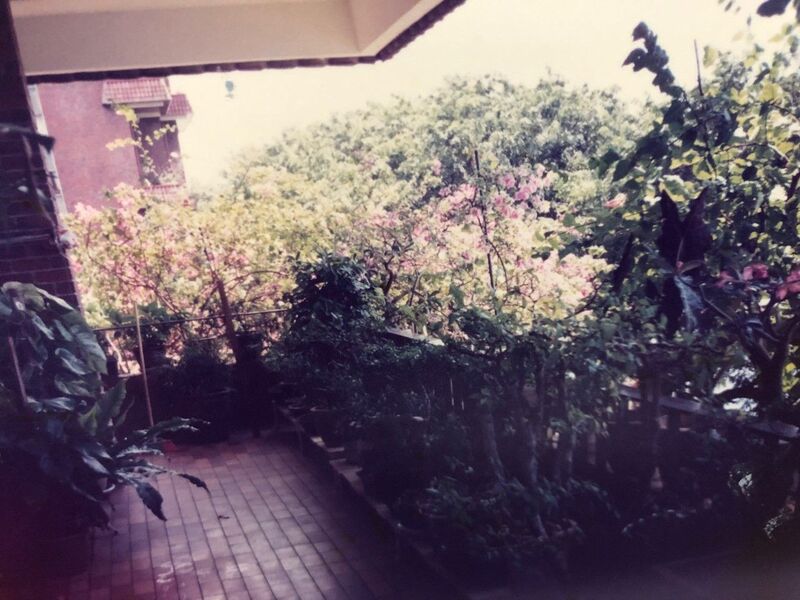 Photo courtesy of Leng Ng Tai
Photo courtesy of Leng Ng Tai
They especially felt the pinch when they had to get used to living in their old house in West Coast.
Their two-floor terrace seemed minute when compared to the massive apartment they lived in in Bukom.
So drastic changes had to be carried out:
"The house felt too small, so we spent about S$150,000 on renovations and added a third floor to our house."
No locked doors on the island
But if there's something that they truly miss in Bukom, it has to be the camaraderie they have built with the 28 other families who lived in the same building.
Leng, who celebrated his 50th work anniversary in 2019, said:
"Most colleagues became friends. Up until now, we still maintain the bond within the colleagues and among the children."
They were so close that almost all of the families didn't have to lock the doors to their houses.
They would also take up dance classes at the clubhouse together, although Leng emphasised that the lessons didn't necessarily make them good dancers.
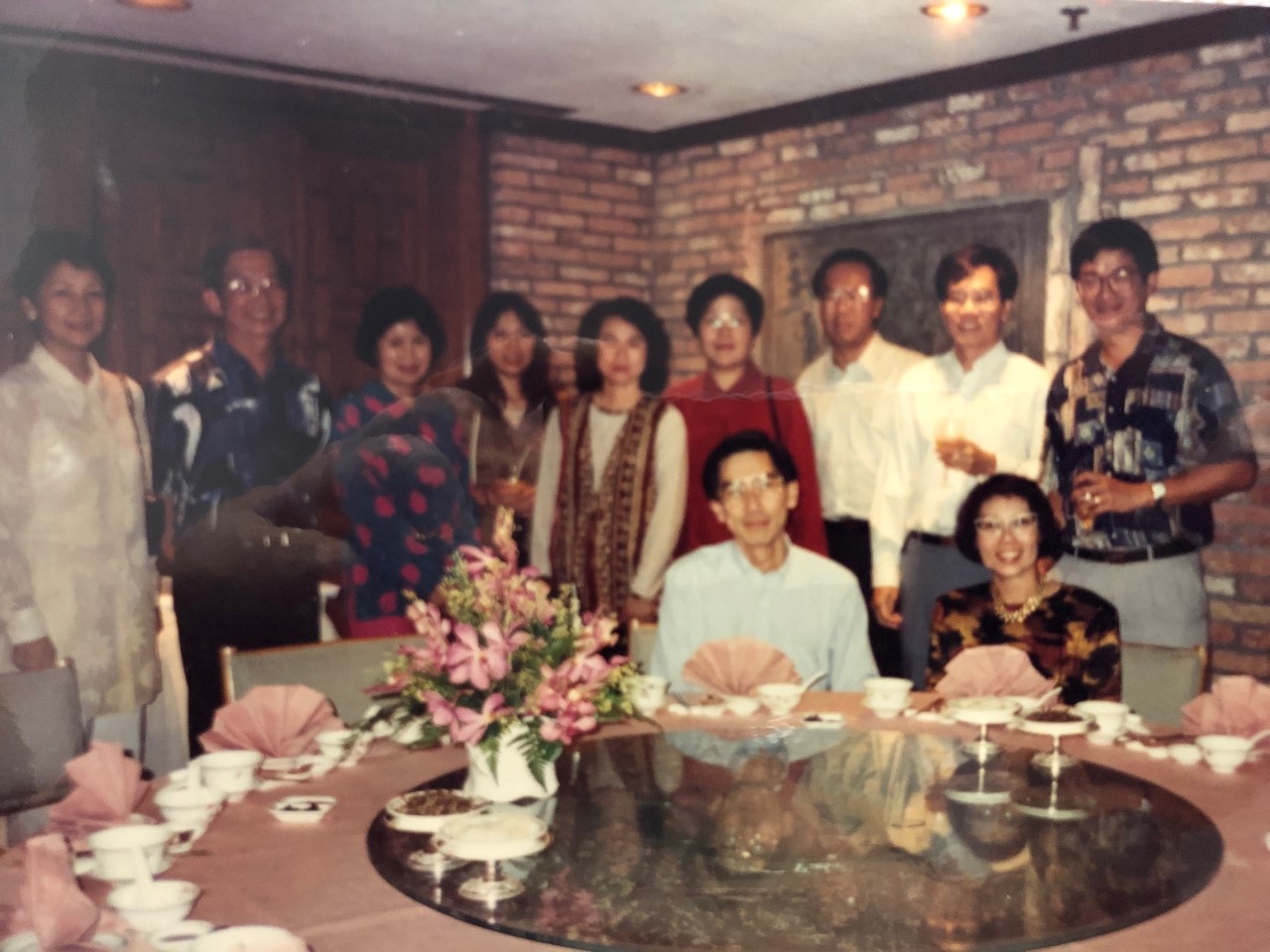 Photo courtesy of Leng Ng Tai.
Photo courtesy of Leng Ng Tai.
Reminiscing the good old days, Benny said: "Sometimes the children would just walk into our house without ringing the doorbells and it didn't feel out of place."
Even though it has been more than 20 years since they last lived in Bukom, both father and son would love to go back to that lifestyle if given the chance.

Leng said: "The views and the clubhouse were great, but one thing I really cherished was the bond and kampung spirit that cannot be recreated elsewhere."
Top image courtesy of Leng Ng Tai and Andrew Koay.
If you like what you read, follow us on Facebook, Instagram, Twitter and Telegram to get the latest updates.
